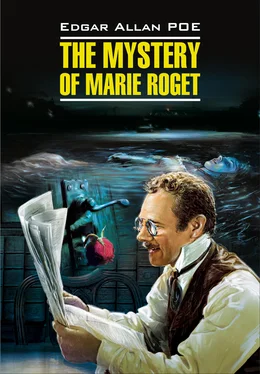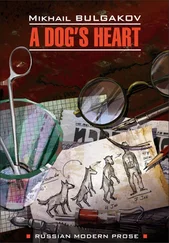“The avenues to death are numerous and strange. A London paper mentions the decease of a person from a singular cause. He was playing at ‘puff the dart,’ which is played with a long needle inserted in some worsted, and blown at a target through a tin tube. He placed the needle at the wrong end of the tube, and drawing his breath strongly to puff the dart forward with force, drew the needle into his throat. It entered the lungs, and in a few days killed him.”
Upon seeing this I fell into a great rage, without exactly knowing why. “This thing,” I exclaimed, “is a contemptible falsehood – a poor hoax – the lees of the invention of some pitiable penny-a-liner [152] some pitiable penny-a-liner – ( уст. ) какой-то жалкий писака
– of some wretched concocter of accidents in Cocaigne. These fellows, knowing the extravagant gullibility of the age, set their wits to work in the imagination of improbable possibilities – of odd accidents, as they term them; but to a reflecting intellect (“like mine,” I added, in parenthesis, putting my forefinger unconsciously to the side of my nose), to a contemplative understanding such as I myself possess, it seems evident at once that the marvelous increase of late in these ‘odd accidents’ is by far the oddest accident of all. For my own part, I intend to believe nothing henceforward that has anything of the ‘singular’ about it.
“ Mein Gott , den, vat a vool you bees for dat!” replied one of the most remarkable voices I ever heard. At first I took it for a rumbling in my ears – such as man sometimes experiences when getting very drunk – but, upon second thought, I considered the sound as more nearly resembling that which proceeds from an empty barrel beaten with a big stick; and, in fact, this I should have concluded it to be, but for the articulation of the syllables and words. I am by no means naturally nervous, and the very few glasses of Lafitte which I had sipped served to embolden me a little, so that I felt nothing of trepidation, but merely uplifted my eyes with a leisurely movement, and looked carefully around the room for the intruder. I could not, however, perceive any one at all.
“Humph!” resumed the voice, as I continued my survey, “you mus pe so dronk as de pig, den, for not zee me as I zit here at your zide.”
Hereupon I bethought me of looking immediately before my nose, and there, sure enough, confronting me at the table sat a personage nondescript, although not altogether indescribable. His body was a wine-pipe, or a rum-puncheon, or something of that character, and had a truly Falstafian [153] Falstaff – сэр Джон Фальстаф, персонаж пьес «Генрих IV» (части 1 и 2) и «Виндзорские проказницы» В. Шекспира; добродушный, дружелюбный, веселый толстяк, любящий выпить, пошутить или надуть кого-нибудь
air. In its nether extremity were inserted two kegs, which seemed to answer all the purposes of legs. For arms there dangled from the upper portion of the carcass two tolerably long bottles, with the necks outward for hands. All the head that I saw the monster possessed of was one of those Hessian canteens which resemble a large snuffbox with a hole in the middle of the lid. This canteen (with a funnel on its top, like a cavalier cap slouched over the eyes) was set on edge upon the puncheon, with the hole toward myself; and through this hole, which seemed puckered up like the mouth of a very precise old maid, the creature was emitting certain rumbling and grumbling noises which he evidently intended for intelligible talk.
“I zay,” said he, “you mos pe dronk as de pig, vor zit dare and not zee me zit ere; and I zay, doo, you most pe pigger vool as de goose, vor to dispelief vat iz print in de print. ’Tiz de troof – dat it iz – eberry vord ob it.”
“Who are you, pray?” said I, with much dignity, although somewhat puzzled; “how did you get here? and what is it you are talking about?”
“Az vor ow I com’d ere,” replied the figure, “dat iz none of your pizzness; and as vor vat I be talking apout, I be talk apout vot I tink proper; and as vor who I be, vy dat is de very ting I com’d here for to let you zee for yourzelf.”
“You are a drunken vagabond,” said I, “and I shall ring the bell and order my footman to kick you into the street.”
“He! he! he!” said the fellow, “hu! hu! hu! dat you can’t do.”
“Can’t do!” said I, “what do you mean? – can’t do what?”
“Ring de pell,” he replied, attempting a grin with his little villainous mouth.
Upon this I made an effort to get up, in order to put my threat into execution; but the rufian just reached across the table very deliberately, and hitting me a tap on the forehead with the neck of one of the long bottles, knocked me back into the arm-chair from which I had half arisen. I was utterly astounded; and, for a moment, was quite at a loss what to do. In the meantime, he continued his talk.
“You zee,” said he, “it iz te bess vor zit still; and now you shall know who I pe. Look at me! zee! I am te Angel ov te Odd!”
“And odd enough, too [154] And odd enough, too – ( разг. ) Вот что странный – это точно
,” I ventured to reply; “but I was always under the impression that an angel had wings.”
“Te wing!” he cried, highly incensed, “vat I pe do mit te wing? Mein Gott! do you take me vor a shicken?”
“No – oh, no!” I replied, much alarmed, “you are no chicken – certainly not.”
“Well, den, zit still and pehabe yourself, or I’ll rap you again mid me vist. It iz te shicken ab te wing, und te owl ab te wing, und te imp ab te wing, und te headteuffel ab te wing. Te angel ab not te wing, and I am te Angel ov te Odd.”
“And your business with me at present is – is —” “My pizzness!” ejaculated the thing, “vy vot a low bred puppy you mos pe vor to ask a gentleman und an angel apout his pizzness!”
This language was rather more than I could bear, even from an angel; so, plucking up courage [155] plucking up courage – ( разг. ) собравшись с духом
, I seized a salt-cellar which lay within reach, and hurled it at the head of the intruder. Either he dodged, however, or my aim was inaccurate; for all I accomplished was the demolition of the crystal which protected the dial of the clock upon the mantelpiece. As for the Angel, he evinced his sense of my assault by giving me two or three hard consecutive raps upon the forehead as before. These reduced me at once to submission, and I am almost ashamed to confess that, either through pain or vexation, there came a few tears into my eyes.
“ Mein Gott! ” said the Angel of the Odd, apparently much softened at my distress; “ Mein Gott , te man is eder ferry dronck or ferry sorry. You mos not trink it so strong – you mos put de water in te wine. Here, trink dis, like a goot veller, und don’t gry now – don’t!”
Hereupon the Angel of the Odd replenished my goblet (which was about a third full of Port) with a colorless fluid that he poured from one of his hand bottles. I observed that these bottles had labels about their necks, and that these labels were inscribed “ Kirschenwasser [156] Kirschenwasser – ( нем. ) шерри-бренди (крепкий алкогольный напиток из мякоти забродившей вишни)
.”
The considerate kindness of the Angel mollified me in no little measure; and, aided by the water with which he diluted my Port more than once, I at length regained sufficient temper to listen to his very extraordinary discourse. I cannot pretend to recount all that he told me, but I gleaned from what he said that he was the genius who presided over the contretemps [157] contretemps – ( фр. ) ошибки, помехи, препятствия
of mankind, and whose business it was to bring about the odd accidents which are continually astonishing the skeptic. Once or twice, upon my venturing to express my total incredulity in respect to his pretensions, he grew very angry indeed, so that at length I considered it the wiser policy to say nothing at all, and let him have his own way. He talked on, therefore, at great length, while I merely leaned back in my chair with my eyes shut, and amused myself with munching raisins and flipping the stems about the room. But, by and bye, the Angel suddenly construed this behavior of mine into contempt. He arose in a terrible passion, slouched his funnel down over his eyes, swore a vast oath, uttered a threat of some character which I did not precisely comprehend, and finally made me a low bow and departed, wishing me, in the language of the archbishop in Gil-Blas , “ beaucoup de bonheur et un peu plus de bon sens [158] beaucoup de bonheur et un peu plus de bon sens – ( фр. ) много счастья и чуть-чуть здравого смысла
.”
Читать дальше
Конец ознакомительного отрывка
Купить книгу












